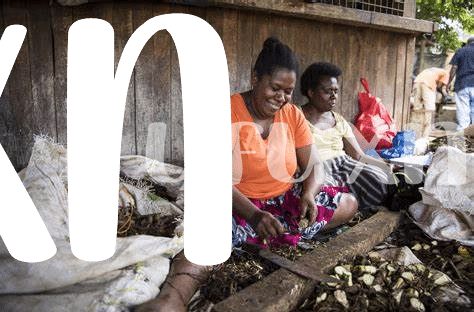Introduction to Bitcoin in Vanuatu 🌴

Bitcoin has emerged as a digital currency making waves in Vanuatu, offering a new way for financial transactions in the island nation. With its decentralized nature and borderless capabilities, Bitcoin brings a fresh perspective to the traditional financial landscape of Vanuatu. Its introduction has sparked curiosity and interest among locals, paving the way for innovative possibilities and opportunities in the realm of digital finance.
Importance of Remittances in Vanuatu 🌏
Remittances play a vital role in sustaining the economic well-being of families in Vanuatu. The funds received from overseas help cover essential expenses such as education, healthcare, and daily living costs. For many households, remittances represent a lifeline that provides stability and opportunities for advancement. The consistent flow of funds from relatives working abroad not only improves the recipients’ quality of life but also contributes to the overall prosperity of the community. The reliance on remittances reflects the interconnectedness of global migration patterns and the local economy, highlighting the significance of these financial transfers for individuals and the nation as a whole.
Challenges of Traditional Remittance Methods 💸

Traditional remittance methods in Vanuatu pose numerous challenges, ranging from high fees that eat into the already limited funds being sent, to long processing times that delay the much-needed funds reaching their recipients. Additionally, the reliance on intermediary banks for transfers adds another layer of complexity, leading to further delays and potential errors that can impact the entire remittance process. The lack of transparency in traditional methods also raises concerns about the security and privacy of personal data, leaving both senders and recipients vulnerable to potential risks and uncertainties.
Role of Bitcoin in Facilitating Remittances 🔗

Bitcoin serves as a revolutionary tool in streamlining the process of remittances in Vanuatu. By leveraging blockchain technology, Bitcoin enables swift and secure cross-border transactions, reducing the dependency on traditional banking systems. This digital currency acts as a bridge, connecting individuals across different geographical locations seamlessly and efficiently. The decentralized nature of Bitcoin also eliminates the need for intermediaries, resulting in lower transaction fees and faster transfer times, ultimately benefiting both senders and receivers. Embracing Bitcoin for remittances in Vanuatu marks a significant step towards financial inclusivity and economic empowerment.
To learn more about how Bitcoin is transforming international remittances, you can check out this insightful article on using bitcoin for international remittances in Uzbekistan.
Benefits of Using Bitcoin for Remittances 💰
Bitcoin, with its decentralized nature, low transaction fees, and faster transfer times, offers a range of benefits for remittances in Vanuatu. Users can send and receive funds securely, without the need for intermediaries like banks or money transfer services. This direct peer-to-peer system not only reduces costs but also ensures quicker transactions, especially crucial in times of urgent financial needs. Additionally, the transparency of blockchain technology provides a secure and traceable way of tracking remittance transactions, giving users greater peace of mind. Overall, the adoption of Bitcoin for remittances in Vanuatu can empower individuals by providing a more efficient and cost-effective way to send and receive money across borders.
Future Outlook for Bitcoin in Vanuatu 🚀

Bitcoin has the potential to revolutionize the remittance landscape in Vanuatu, offering a secure and efficient alternative to traditional methods. As the adoption of digital currencies continues to grow globally, Vanuatu stands to benefit from the convenience and cost-effectiveness that Bitcoin provides in facilitating cross-border transactions. With its decentralized nature and peer-to-peer network, Bitcoin presents a promising future for remittances in Vanuatu, offering a more accessible and inclusive financial system for individuals looking to send and receive money internationally.
To further explore the evolving landscape of using Bitcoin for remittances in different regions, travelers can gain valuable insights by understanding the regulations in Afghanistan while also exploring the practical application in countries like Zambia. By utilizing Bitcoin as a tool for international remittances, individuals can navigate the complexities of traditional banking systems and embrace the digital opportunities for financial inclusion and empowerment.
